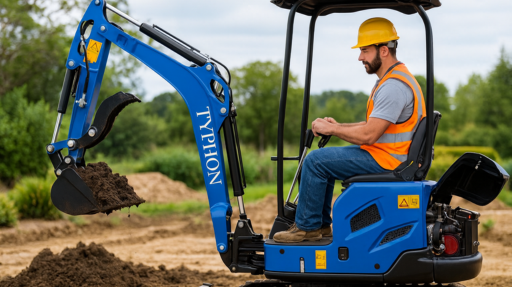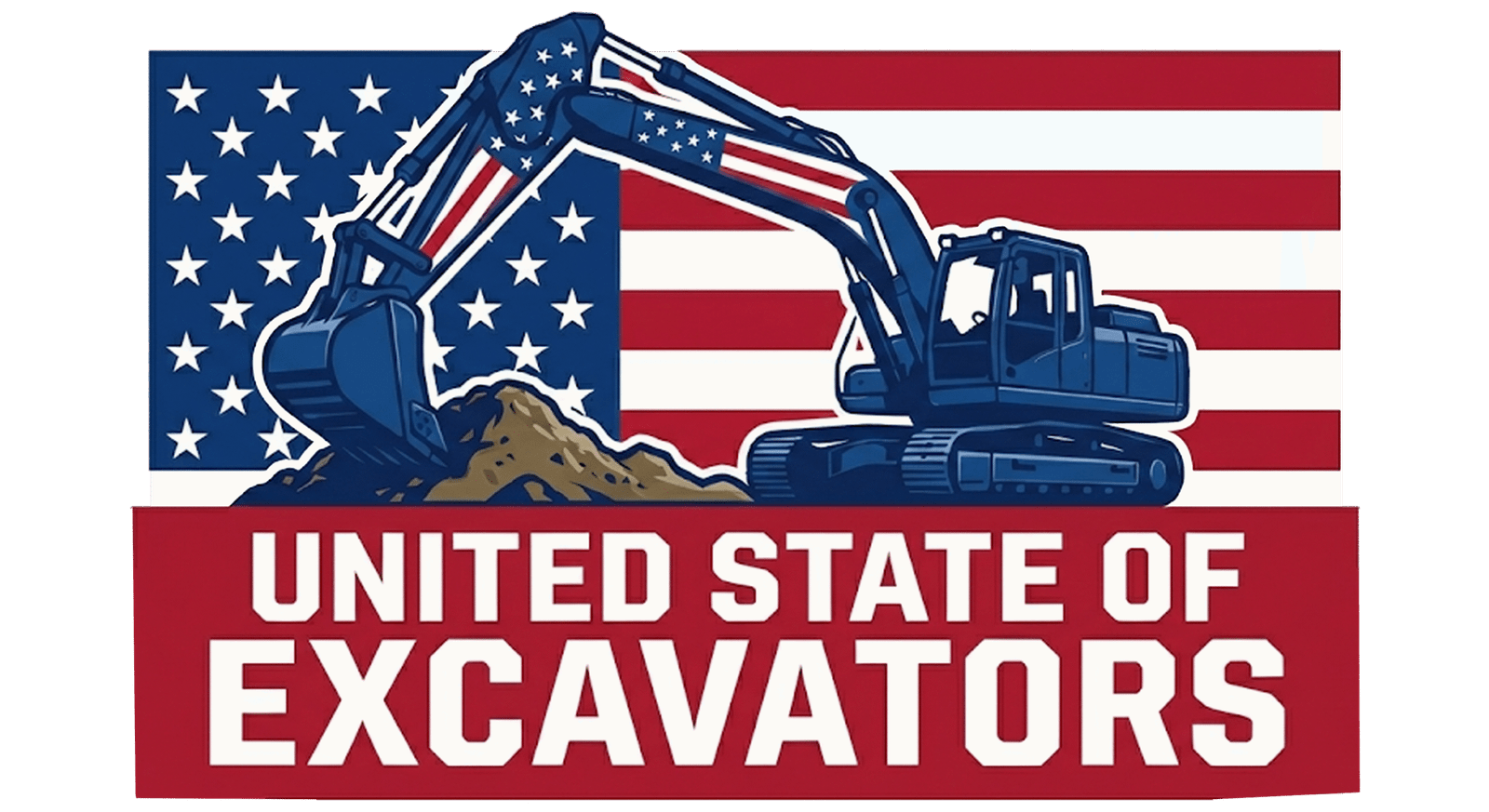Free Shipping Within USA | 1-year Warranty

Maximizing Efficiency: Mini Excavator Engine Maintenance
One very important point in many cases is regular maintenance of equipment especially heavy machinery like mini excavators. Without this, the performance of the machines will not only be less, but the lifespan of the machines will also be shortened drastically.
These machines tend to be in extreme working conditions and if they are neglected, it may cause the machines to be damaged due to the wear and tear of the components.
Facing this problem, the users of those machines decide to maintain the machines periodically with engineering technicians so minor issues are identified in the early stage and prevent them from escalating into major problems that would require expensive repairs or the condition of the engine hard to be restored.
In addition to that, regular track repair less impact on money and time also supports the track for a long time still be an effective asset in the market which is a good return of the invested money to be chosen by any contractor or construction business. In addition, regular maintenance gives a very big contribution to safety at the workplace.
It would be fantastic that they had been well-maintained mini excavators which were less likely that they will experience breakdowns that might endanger the operator and people nearby.
To illustrate, faulty hydraulic systems may result in the sudden movement of the excavator’s arm that can hurt the staff safety. In this case, the workers securing functioning of the petrol engine and subsystems through regular checks and services could be their safety net to a securely controlled and thus safer environment.
Key Takeaways
- It is very important to conduct regular maintenance on your mini excavator, especially on the engine to keep it working for a long time and in good condition.
- You must also acquire the knowledge about the engine parts if you want to do the maintenance and if something goes wrong, you can easily troubleshoot.
- You have to do the oil check and oil change regularly in order to keep the engine well lubricated and working in the proper way.
- By monitoring the coolant levels and a clean one, you prevent an overheated engine leading to further damages.
- There is a need to pay close attention to air filter habits and if their prompt replacement as an integral principle in the mini excavator will ensure a smooth and powerful engine.
Understanding the Engine Components
In order to successfully keep a mini excavator in good working condition, it is necessary to have basic knowledge of the engine parts. The engine is basically the core of the machine which turns the energy in the form of fuel into mechanical energy which is then used to power different functions.
The main components are the cylinder block, pistons, crankshaft, camshaft, and valves. Each of these elements is vital for the engine operations, and an error in any of them will result in the performance of the engine becoming lower, or it can even completely break down. The cylinder block is the part that contains the cylinders where the burning process happens.
In these cylinders, pistons move up and down, thus converting the energy from the burning operation into mechanical motion. After this, the crankshaft converts this linear motion into rotational motion, which is the one that ultimately powers the excavator’s tracks or wheels.
The camshaft is the one that controls the opening and closing of the valves, which are responsible for both the intake of air and fuel as well the release of the exhaust gases. Knowing how these pieces work together will give the operators the possibility to find the problem at the earliest stage and thus they can take the right step before the problem gets bigger and they have to call the service department.
Checking and Changing the Oil
The most important thing in engine maintenance is definitely regular oil checks and oil changes. What makes the oil is that it lubricates the moving parts, reduces friction, and also it cools the engine.
Over the years, the oil in the engine could be contaminated by dirt, particles of metal, and other contaminants and as a result, its effectiveness will be compromised.
For these reasons, it is very important to keep a close eye on the oil level and oil quality on a regular basis. To measure the oil level, an operator should make use of a dipstick which is located in the engine area.
Oil should be in the appropriate level that is indicated on the dipstick; if the oil is at a low level, then it may be that the oil needs to be topped off or changed completely.
When changing the oil, the one used in the machine should be that which is recommended by the manufacturer both in terms of the type and viscosity so that the engine can perform at its best.
In most cases, it involves oil draining, oil filter removal, and fresh oil putting. Regular oil changes are not only the life of the engine but they also facilitate fuel consumption and have a positive overall performance impact.
Monitoring Coolant Levels and Condition
The cooling system of a mini excavator is the one that keeps the engine temperature within the limits during working. If the engine is overheated, it can cause very serious damages to the engine and that is why the operators have to monitor the coolant levels and the condition on a regular basis.
The coolant travels through the engine block and the radiator, where it absorbs the heat and releases it. The operators have to check the coolant levels all the time, and this is even more important before they decide to go on for a longer work session.
If the coolant level is low, it may be a leak in the system. Besides the checking of the coolant levels, coolant must also be checked for clarity and color.
A contaminated or discolored coolant can be the sign that it is time for it to be changed. The usage of a combined antifreeze and water that is at the correct ratio will be beneficial in the prevention of freezing at colder places and boiling over at hotter conditions.
Routinely refreshing the cooling system is also helpful to get rid of any rust and dirt that may be trapped in the cooling system and that may reduce the performance.
Inspecting and Replacing Air Filters
The function of air filters is to help engines to be more efficient by proving clean air to be used in the combustion chamber. After a while, air filters may be filled with contaminants such as dust, dirt, and other particulate matters and this will cause the airflow to be blocked leading to engine performance getting weaker.
The regular air filter checks and replacements are of great importance in the smooth running of a mini excavator. It is advised that operators should inspect the condition of the air filters regularly and especially when the drop in engine performance or vehicle fuel consumption increases is seen.
An air filter in good condition can provide for unrestricted air flow which results in a high combustion efficiency and engine power. In case an air filter looks dirty or there is a sign of it being damaged then it is the time to replace it. Based on the working conditions – eg dusty environments – filters might have to be changed more frequently to still be in top condition.
Maintaining Proper Fuel Quality
Fuel quality is another very important factor that determines how well the engine will perform in mini excavators. Contaminated or poor-quality fuel may cause the engine to lose power and emit more pollutants.
Further damage to fuel injectors or pumps is also possible. To prevent such situations, operators should use only fuel of good quality and that meets the specifications provided by the manufacturer.
The main rule to maintain proper fuel quality is to buy good fuel from reliable dealers who are compliant with the industry standards. Besides that, operators must always keep an eye on the condition of the fuel tanks to make sure that they are free from both contaminants and water. Water in fuel can result in corrosion and other serious side effects inside the engine.
Fuel additives that are made for stabilizing fuel quality can also be a great help in preventing fuel degradation over time, especially when the excavator is going to be idle for long periods of time.
Keeping an Eye on Belts and Hoses
Belts and hoses are some of the most important parts that lie in a mini excavator’s engine system, and also, they are responsible for the transfer of power and fluids throughout the machine. In the long run, these parts may become worn due to factors such as exposure to heat, friction, and the environment.
The regular checking of belts and hoses is a very good measure to preclude sudden breakdowns. Wear signs that one can spot on belts and hoses through the looking should be characters such as cracking, fraying, or bulging, thus the workers should keep an eye on them.
If there is any visible damage, then the replacements should be made straight away so that support failure during operation is impossible. Besides that, it is very important to check whether the belts are at the right level of tension.
Extremely tight belts can overwork the pulleys and bearings while overly loose ones can slip or even break. In addition to ensuring the smooth working of a machine, taking care of belts and hoses is also part and parcel of maintaining one’s engine healthy.
Tips for Extending the Life of Your Mini Excavator Engine
One of the first things to come to mind when talking about the life of an engine is, of course, good care and maintenance. The most effective method is to set up a routine maintenance schedule comprising everything needed for inspection and servicing based on factory recommendations.
Thoroughness in maintenance work is best ensured via recording all activities which will, in turn, allow the operatives to monitor the equipment’s performance and even spot faults in the early stage. Besides that, another important tip would be to keep the mini-excavator within its working range.
To be more exact, this means not overloading the machine and not pushing it over its limit so that the engine parts are not subjected to excessive wear and tear.
If things are good, the operator should also take heed of his own manner of execution such as gradually accelerating and decelerating thus lessening the engine’s burden as opposed to sudden movements.
Last, but not least, the commitment to the use of quality replacement parts every time there is a need for repair goes hand in hand with the machine’s long-life and less-frequent upkeep.
Essentially, by adhering to these pieces of advice and having a good understanding of their equipment’s needs, operators can be able to keep their mini-excavators going for a long time while at the same time be certain of their dependability on every site.



